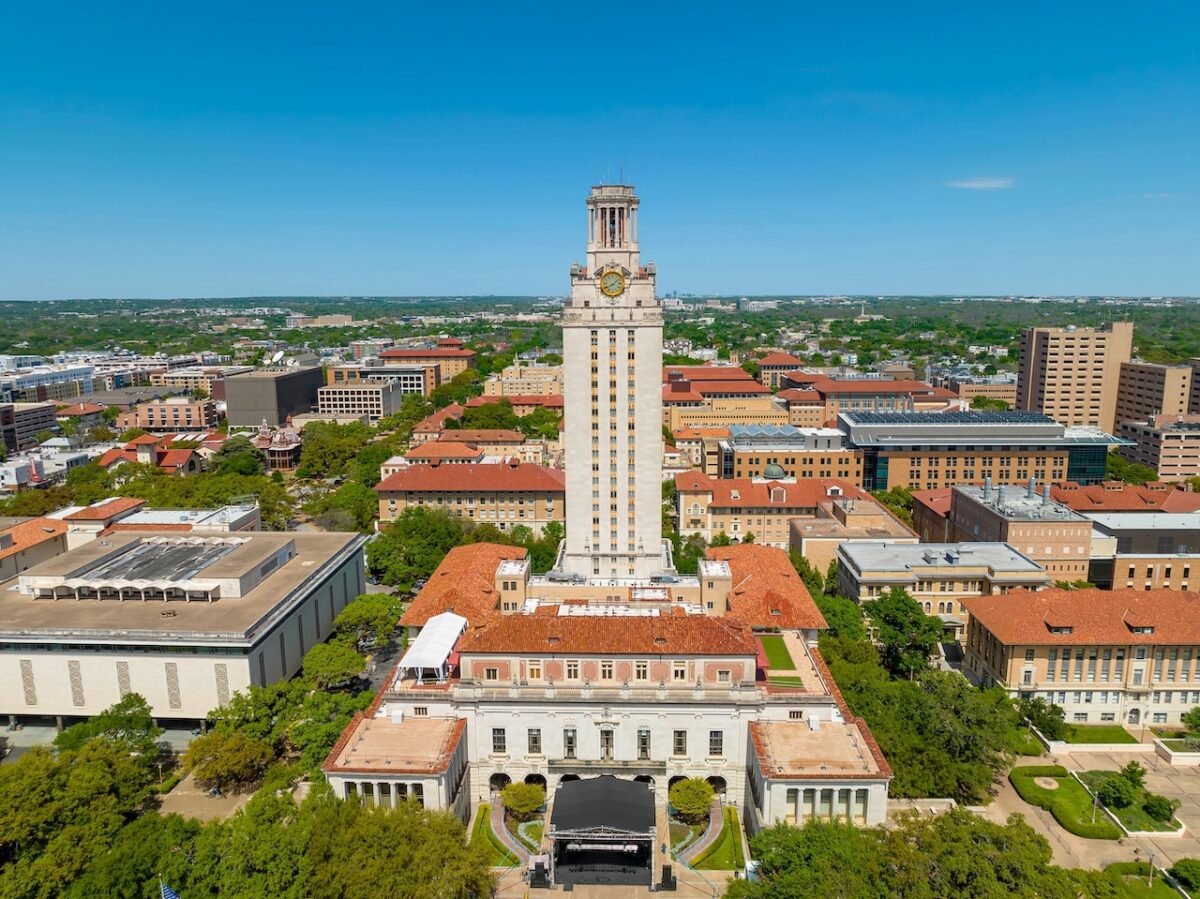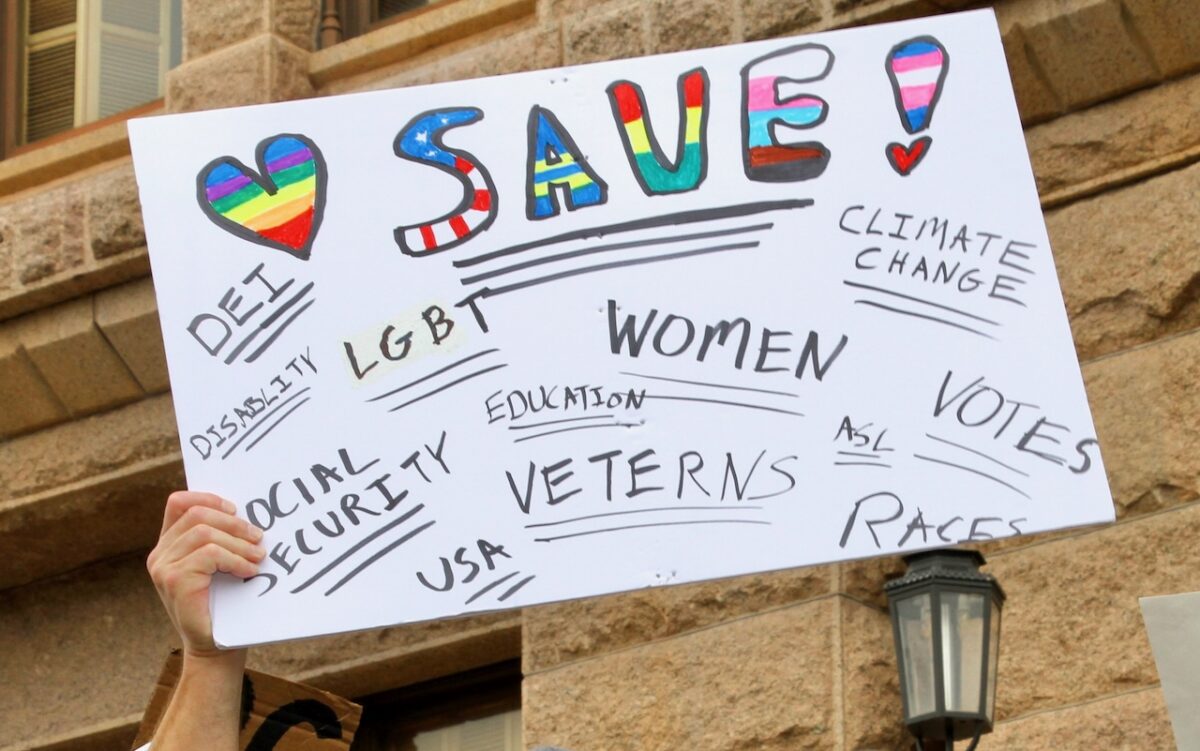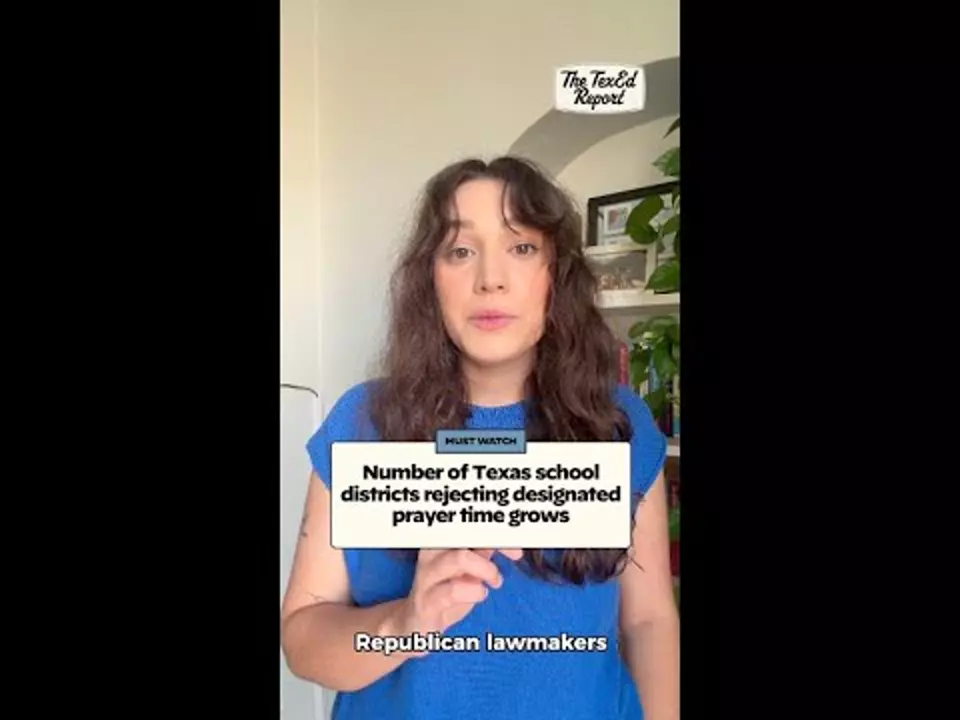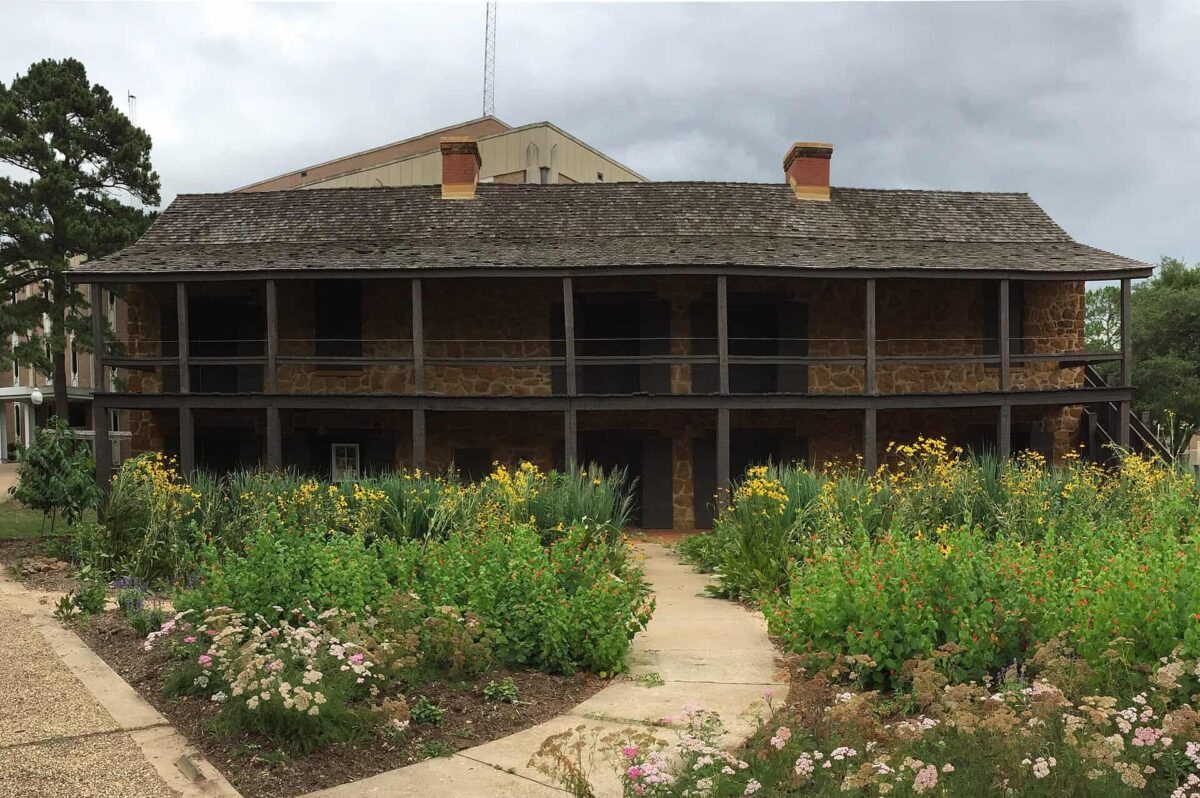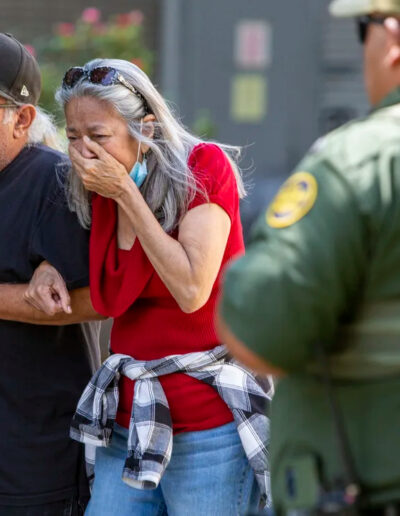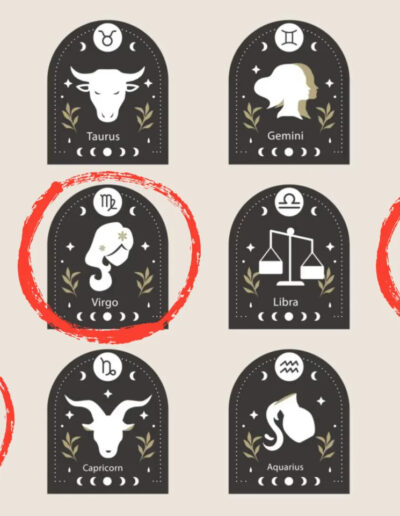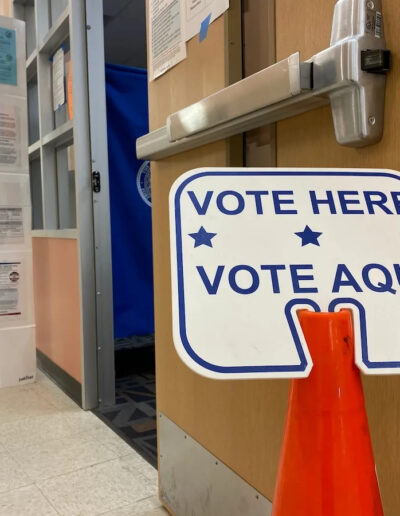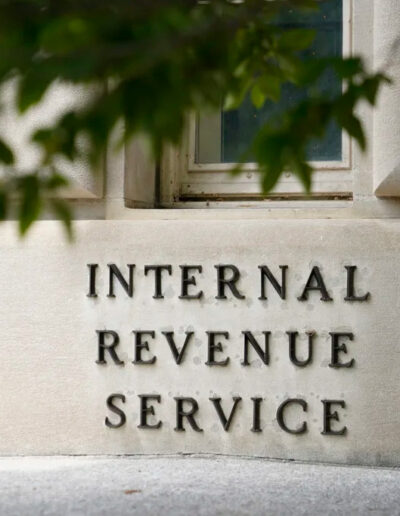
Some 1,781 books were banned throughout Texas public schools during the 2024-25 school year. (Photo by Shutterstock/DimaBerlin)
Three states—including Texas—account for 80% of all book bans in the country, according to new data from PEN America.
It’s Banned Books Week, which means PEN America—a nonprofit that fights censorship—has updated its database of banned books in public schools throughout the country.
The organization warns that the number of books challenged or banned continues to rise since it began tracking book bans in 2021.
More than 6,800 books were banned in the 2024-25 school year in 87 public school districts across 23 states. Florida has the most, with 2,304 instances of bans, followed by Texas with 1,781 bans, and Tennessee with 1,622. PEN America recorded 3,362 banned books in the 2022-23 school year and 10,046 in the 2023-24 school year.
When did Banned Books Week start?
Banned Books Week was started in 1982 by free speech activist Judith Krug, who was the director of the American Library Association’s Office for Intellectual Freedomin, in response to a surge in the number of challenges to books in libraries, bookstores, and schools. It’s held during the last week of September or first week of October.
The week is meant to highlight the value of free and open access to information, celebrate the freedom to read, and draw attention and provide calls to action against censorship in public schools, libraries, and bookstores, according to PEN America.
What is a banned book?
PEN America’s definition of “bans” includes books that have been taken off library shelves, books that are pending an investigation, or books that have had any other steps taken against them as a result of parent, community, or government pushback leading to limited student access.
What types of books are targeted?
Books that have themes related to race—such as “The Hate U Give” by Angie Thomas, LGBTQ+ topics—such as the graphic novels “Heartstopper” by Alice Oseman, and depictions of assault—such as “The Kite Runner” by Khaled Hosseini, are frequently targeted.
Thousands of books were taken off shelves this year in anticipation of community, political, or legal pressure—rather than in response to a direct threat, according to PEN America.
What are the most banned books in the country?
According to PEN America, the 10 most challenged books of the 2024-25 school year were:
- “A Clockwork Orange” by Anthony Burgess
- “Breathless” by Jennifer Niven
- “Sold” by Patricia McCormick
- “Last Night at the Telegraph Club” by Malinda Lo
- “A Court of Mist and Fury” by Sarah J. Maas
- “Crank” by Ellen Hopkins
- “Forever…” by Judy Blume
- “The Perks of Being a Wallflower” by Stephen Chbosky
- “Wicked: The Life and Times of the Wicked Witch of the West” by Gregory Maguire
- “All Boys Aren’t Blue” by George M. Johnson
Texas laws promoting censorship in school libraries
This year, Texas lawmakers passed Senate Bill 13, which took effect on Sept. 1.
The new law requires that school boards, rather than librarians, have the final say over which books or materials can be put in school libraries, banning anything that doesn’t adhere to “local community values.”
It also creates an advisory committee made up of parents that the board can delegate decision making to, and requires that school districts remove books with “indecent,” “profane,” or “sexually explicit” material, and allows board members to veto new library purchases.
Any new library material is subject to a 30-day public review, and then the school board would have another month before a vote. The bill also allows parents to submit a list of books their child specifically is not allowed to check out from their school’s library, and includes definitions for what is considered “harmful material” and “indecent content.”
In 2023, Texas lawmakers also passed House Bill 900, which seeks to keep “sexually explicit” books off of school library shelves by creating new library standards.
The law requires school library vendors to assign ratings to books and materials based on the presence of sex depictions or references, and urges vendors to recall materials already in circulation that are now deemed sexually explicit.
The law was partially blocked from implementing a book rating system by a federal appeals court in 2024.
Texas districts with the most banned books
North East ISD, located outside of San Antonio, had the largest number of banned books during the 2024-25 school year with 752. Katy ISD came in second, with 513 banned books. Lamar Consolidated ISD had 286, Nacogdoches ISD had 150, and Fort Bend ISD had 78. Canyon and Highland Park ISDs each have one banned book.
See the full list of books banned in Texas in the 2024-25 school year.
The most banned books in Texas
The following books were banned across five different districts—North East, Katy, Fort Bend, Nacogdoches, and Lamar Consolidated ISDs—during the 2024-25 school year:
- “A Clockwork Orange” by Anthony Burgess
- “Homegoing” by Yaa Gyasi
- “More Happy Than Not” by Adam Silvera
- “Nineteen Minutes” by Jodi Picoult
- “Sold” by Patricia McCormick
- “The Freedom Writers Diary” by Erin Gruwell
Can you believe these books are banned in Texas public schools?
Some of the most shocking banned books in Texas during the 2024-25 school year include The Bible, “Pinkalicious,” which is a children’s picture book by Victoria Kann, and “The Jungle Book” by Rudyard Kipling.
Books that were previously required reading and part of curriculum in English or Literature courses, including “The House on Mango Street” by Sandra Cisneros and “To Kill a Mockingbird” by Harper Lee, have also been banned.
Sign up for The TexEd Report, a free, weekly newsletter focused on education in Texas, to join the Texas Banned Book Club. Each month, DFW Political Correspondent Katie Serrano features a new book that’s been banned in Texas public schools, and dives deeper into its educational value.
Support Our Cause
Thank you for taking the time to read our work. Before you go, we hope you'll consider supporting our values-driven journalism, which has always strived to make clear what's really at stake for Texans and our future.
Since day one, our goal here at COURIER Texas has always been to empower people across the state with fact-based news and information. We believe that when people are armed with knowledge about what's happening in their local, state, and federal governments—including who is working on their behalf and who is actively trying to block efforts aimed at improving the daily lives of Texas families—they will be inspired to become civically engaged.






